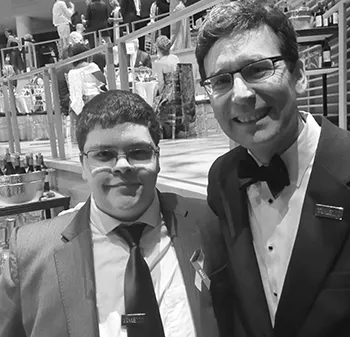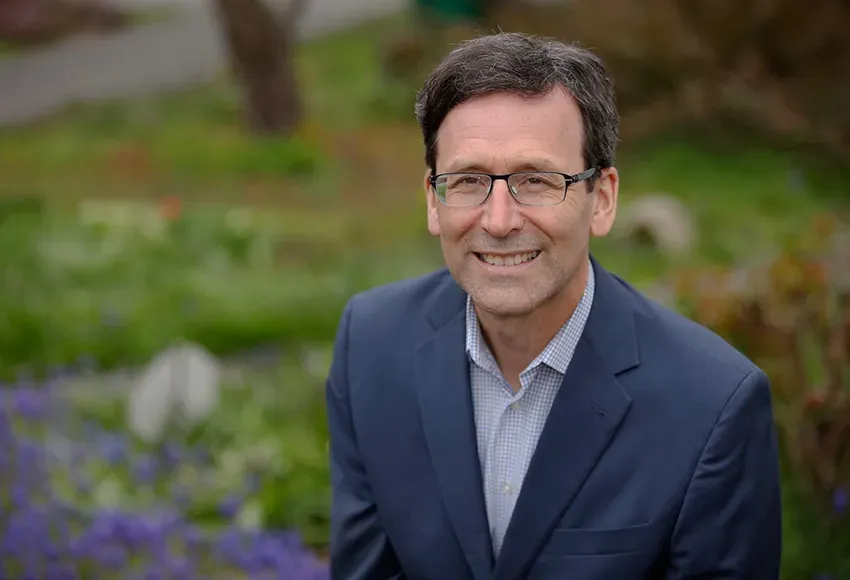When Washington State Attorney General Bob Ferguson was elected to office, one of his top priorities was to establish the Wing Luke Civil Rights Division. This was breaching new territory in that, prior to Ferguson, anyone who called the AG's office with a civil rights complaint would be referred elsewhere, and he said this just did not sit right with him.
"Not one single person in our office did civil rights work on behalf of the people, so I created the Civil Rights Division," he said. "With close to 30 people working in that division, it is by any measure the best civil rights division in the country. That team does amazing work."
What followed were numerous civil rights cases that positively impacted the LGBTQ and BIPOC communities alike. Now that Ferguson is running for Washington state governor, he intends to continue his legacy of civil rights advocacy, especially with the possibility of a Trump presidency looming.
"If that dark day arrives, I think Washingtonians will want to have a governor who knows how to stand up to Donald Trump and protect their rights," Ferguson said.
Dignity and respect
Ferguson said it is important to him for many reasons to support LGBTQ Americans.
"Fundamentally, I believe that everybody should be treated with dignity and respect, no matter who they are or what they look like or who they love," he said. "I was fortunate to be raised in a household with parents who believed that and imparted that in all seven of their kids."
Looking back on his childhood in the 1970s, Ferguson fondly remembers a favorite Gay uncle who Ferguson said was treated just like another member of the family. This was at a time when not all Gay men could say their families gave them unconditional love.
"He was not treated any differently by any of his siblings, and that was a good lesson for me as a young boy at the time," Ferguson said. "It's important for all of us, no matter what role we have as an individual, as an attorney general, to make sure we're doing everything we can to ensure that folks are treated with dignity and respect."
That his uncle's name was also Robert Ferguson leads to amusing moments, such as when AG Ferguson is taken for an artist when visitors to his office see his uncle's signed works on his walls.
Defending Queer lives
This foundation in inclusivity propelled Ferguson and his team to take on several LGBTQ-related legal issues through the Wing Luke Civil Rights Division. An example is the consumer protection lawsuit he filed in 2013 against Arlene's Flowers and Gifts in Richland, Wash. Owner Barronelle Stutzman had refused to provide wedding flowers to long-time customer Robert Ingersoll, based on her opposition to same-sex marriage. On Nov. 15, 2016, Ferguson argued the case before the Washington Supreme Court, the first and only case he argued personally as attorney general.
"I was just so outraged by the way this couple was treated," he said. "I remember thinking to myself that if I argued it personally, every justice on the Supreme Court would know that I cared that much. I wanted them to see me up there arguing that, because I wanted to send that message to the court."
Stutzman kept fighting back, but she ultimately opted to offer a cash settlement to keep her legal fees from escalating further.
"The team did a fantastic job on it. That was one that I was proud of personally and proud of for the office," Ferguson said. "It was one of our first big civil rights cases on behalf of the LGBTQ community and it had national attention. It was a great result."

In 2017, Ferguson led a coalition of 17 states and the District of Columbia in urging the United States Court of Appeals for the 4th Circuit to uphold the right of Gavin Grimm, a Transgender student in Virginia, to use the school bathroom corresponding to his gender identity. Ferguson filed a key legal brief in this first Transgender rights case ever heard before the US Supreme Court. Grimm emerged as the victor.
"The fact that it wasn't a case filed in Washington didn't make any difference to me. We knew the rights of Transgender individuals here in Washington state could be impacted by that case," Ferguson said. "That's why we wanted to write and lead that brief in support of that community here in our state and across the country."
Filing a legal brief for a case outside of Washington state was a rare move for Ferguson.
"As attorney general, I have the ability to file a legal brief in any court in the country," Ferguson explained. "We use that sparingly, for obvious reasons, because there are a zillion cases going on, but we do file these legal briefs if there is a case in another state or jurisdiction where there is a legal issue that we think is so important that we want to make sure the voices of Washingtonians are heard before that case is decided."
In more strategies to defend Transgender rights, Ferguson and 18 attorneys general signed onto a letter in 2017 urging members of the Armed Services Committees of the US House and Senate to stand with Transgender military service members and protect their right to serve. That same year, he went to federal court, asking it to allow the State of Washington to join a federal lawsuit challenging then-President Donald Trump's ban on Transgender people serving in the military.
Most recently, Ferguson helped block a challenge to our state's ban on conversion therapy. He appeared before the US Court of Appeals for the 9th Circuit in 2022 to ask the judges to uphold the law, and the court agreed.
"I don't go weighing in on legislation all the time as attorney general. I'm not a legislator, but I did support this, and I was proud of my team for successfully upholding that law in court," he said. "Even in a state like Washington, the rights and dignity of all Washingtonians can be under threat and under attack. I'm thankful that we have a state with leaders like Sen. Marko Liias and Sen. Jamie Pedersen who stand up. For us, it was an honor to defend that law."
Tight race for governor
After serving 12 years as Washington state's 18th attorney general, first elected in 2012 and re-elected in 2016 and 2020, Ferguson saw an opportunity when Gov. Jay Inslee announced that he would not seek his fourth term in office. Ferguson is among a field of 28 candidates vying for the seat.
When asked why he joined the race, Ferguson replied, "It's a feeling of being able to use the powers of that office to continue my focus on advocating for Washingtonians and trying to make life better for them."
Ferguson said he is the only candidate running who does not accept money from large corporations or corporate political action committees.
"That is not the easy way to raise the $15 million I need to run, but I'm trying to communicate that my campaign, and my administration if I'm elected, is focused on the people."
Washington state hasn't had a Republican governor since John Spellman, who served one term from 1981 to 1985. The leading Republican candidates this year are former US Rep. Dave Reichert and Semi Bird, the latter of whom was endorsed by the party.
This year's presidential election could also open the door for a successful Republican candidate, the frontrunner currently being Donald Trump.
Ferguson is familiar with a Trump presidency from having pushed back against him while Trump was in office, including delivering the president's first defeat. Through Ferguson's Civil Rights Division, in 2017 a federal court challenge forced Trump to capitulate on his travel ban, which used an executive order to bar travelers from Iran, Iraq, Libya, Somalia, Sudan, Syria, and Yemen for 90 days. US District Court Senior Judge James L. Robart issued an injunction halting the order after Ferguson filed his lawsuit challenging key provisions of the order as illegal and unconstitutional. Numerous key provisions challenged by Ferguson were eliminated or restricted in the order that Trump had to revise, including bans on green card holders, visa holders, and dual citizens; an indefinite ban on Syrian refugees; and explicit preferences based on religion. In addition, Iraq was removed from the travel ban list.
In 2019, Ferguson filed his 50th lawsuit against the Trump administration when it ruled to significantly undermine the Endangered Species Act.
Back home in Washington, Ferguson said he understands that he will be in the middle of a tight race.
"Chris Gregoire, when she first ran for governor, won by just 133 votes. Jay Inslee, when he first ran for governor, ran a very hard-fought race against Rob McKenna and in the end won by just three percentage points," he said. "Those were the last two campaigns for governor without an incumbent, like this one. We expect this race to be as close as those two races."


